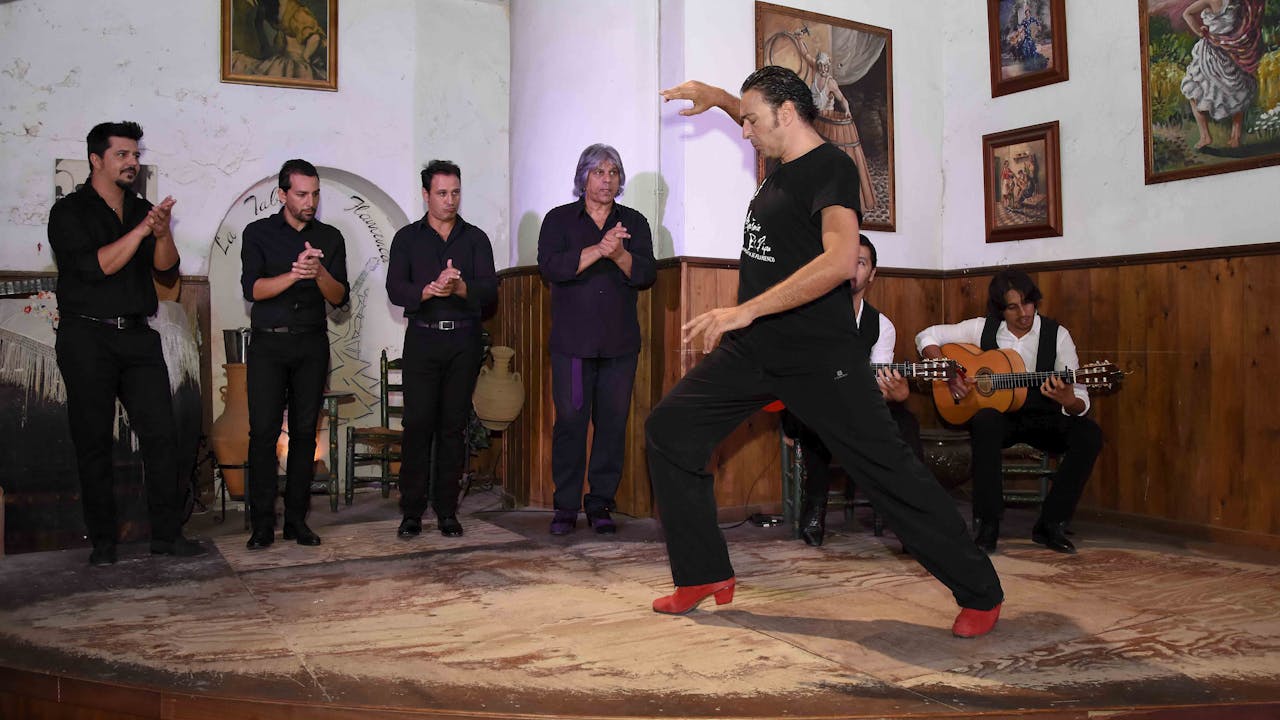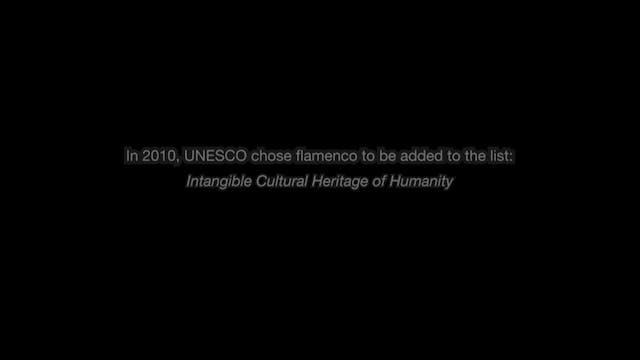Flamenco: the Land Is Still Fertile - EPI #1 -UNIV
This episode focuses on flamenco's connection with farm-workers, especially gitano (Spanish Gypsy) farm-workers, who lived in farm-workers' dormitories for most of the year. To keep up their spirits after the grueling work they did,
in the evenings, they sang (and sometimes danced) flamenco. It should be pointed out that entire families lived together, separated by age, sex and martial status by curtains they strung up to provide a bit of privacy. Because of their close
proximity over long periods of time, perhaps more than anyone else, they as are responsible for maintaining and further
developing the art form, at least since the 19th century.
The episode is enriched by the performance of several flamenco stars: Niño Jero el Periquín on the guitar, the cante
(singing) of Tía Juana la del Pipa and Antonio de la Malena, and the dance of Antonio el Pipa. In addition, there is a section about the origins of gitanos in northwest India's Rajasthan which includes photos and some video from the
region.
A half-hour (27 min.), color, HD, closed captions; produced/directed by Eve A. Ma, with narration by flamenco singer Antonio de la Malena. In Spanish with English subtitles, and closed captions.
-
Flamenco: the Land Is Still Fertile - EPI #1-UNIV
This first of four half-hour episodes of "Flamenco: the Land Is Still Fertile" looks at farm laborers & origins of "gitanos" (Spanish Gypsies). It uses world-class performance - there are four solos in this episode - along with fascinating interviews, a stellar narration by flamenco singer Anto...


